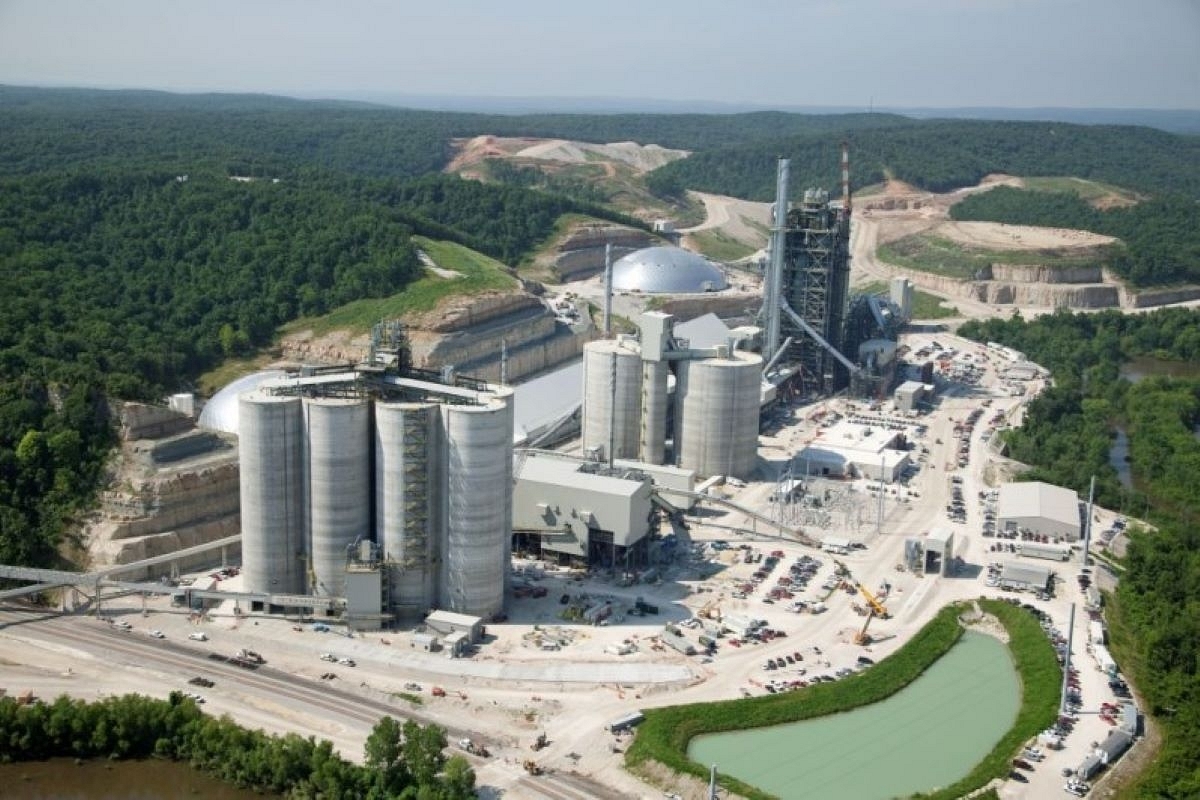Business
Why Is Holcim Exiting India And What It Could Mean For Domestic Cement Prices
- Holcim, world leader in cement manufacturing, is in talks with JSW Cement and the Adani Group for sale of majority stake in Ambuja and ACC.
- The cement industry is a commodity industry, and a large increase in supply would result in a glut. However, after the sale, the Indian cement market is likely to be concentrated in the hands of a few players, as ACC and Ambuja account for almost 13 per cent of the market with the 64 million tonne capacity.

Holcim Factory
The race to acquire Holcim's assets in India has heated up as several large cement manufacturers are vying to acquire Holcim's stake in Ambuja and ACC. Currently, the company is in talks with JSW Cement and the Adani Group, and the sale is expected to bring in more than $ 10 billion for Holcim.
While JSW Cement is said to have made a bid for Holcim's India's business for $ 7 billion, Adani Group is believed to be looking at paying upwards of $ 10 billion to Holcim. Holcim holds a 63 per cent stake and a 5 per cent stake in ACC. Ambuja holds another 50 per cent in ACC Cement.
Focus on Green Products
Holcim's decision to exit India surprised many as the country formed more than a fifth of its capacity and its sales volumes. Of Holcim's global capacity, India makes up 23 per cent. India also contributes 27 per cent of Holcim's sales volumes. Further, among the other markets that Holcim operates in, India offers a potential for high future growth as the country continues growing rapidly and has favourable demographics. Usually, mature markets do not offer high growth opportunities and a long runway for growth.
However, Holcim has been divesting its stake in several emerging markets over the last few years, in line with its "Strategy 2025 – Accelerating Green Growth". The company is looking to move away from cement production, which is a sector responsible for significant pollution. Rather than cement, the company is looking to move into innovative and sustainable building solutions. Previously, Holcim had conducted some divestments like that of its Indonesia business under its "Strategy 2022 – Building for Growth", under which it had committed to divestments of at least CHF 2 billion. Between 2019 and 2021, Holcim had already divested 3.1 billion worth of assets across the globe.
Apart from Indonesia, the company has divested its stakes in Brazil, Northern Ireland, Madagascar, Malawi, Zambia and other areas. The slow growth in Ambuja and ACC's capacities had caused them to lose market share over the years, which some speculate made the decision easier for Holcim.
How could it affect the Indian Cement Market?
Some argue that the acquirers of Holcim's India assets would focus on increasing the company's capacity to make up for years of slow investment in new capacity. Therefore, prices could see downward pressure as supply exceeds demand.
The cement industry is a commodity industry, and a large increase in supply would result in a glut. However, after the sale, the Indian cement market is likely to be concentrated in the hands of a few players, as ACC and Ambuja account for almost 13 per cent of the market with the 64 million tonne capacity.
High concentration usually allows players to cooperate with each other, and keep prices relatively more stable. Fragmented markets in contrast, typically result in a higher competition and drawn-out price wars until the markets consolidate. In addition, the buyer who has already expanded resources to buy the new assets is unlikely to have the financial capacity or the need to immediately make new investments into increasing capacity. So, there are chances that prices could remain stable rather than plummet.
In the past, the Indian cement sector had been probed for cartel formation as well. Hence, some believe that the deal could face some difficulties from regulatory authorities such as the Competition Commission of India (CCI).
The CCI has been on the heels of cement companies for years. In 2010 it imposed a fine of Rs 6000 crores on ten cement companies for allegedly engaging in cartel formation. It had asked for a fine of Rs 6,700 crores from 11 large Indian cement companies in 2016. Later in 2018, it said that six leading cement companies had formed a cartel.
While the situation's outcome is debatable, the official sale is yet to occur. It is expected that Holcim India will come out with the acquirer's name before May 15. However, irrespective of the acquirer, it will be interesting to see whether the decision to exit India was correct and how the Indian market responds to increasing consolidation among cement players.
Support Swarajya's 50 Ground Reports Project & Sponsor A Story
Every general election Swarajya does a 50 ground reports project.
Aimed only at serious readers and those who appreciate the nuances of political undercurrents, the project provides a sense of India's electoral landscape. As you know, these reports are produced after considerable investment of travel, time and effort on the ground.
This time too we've kicked off the project in style and have covered over 30 constituencies already. If you're someone who appreciates such work and have enjoyed our coverage please consider sponsoring a ground report for just Rs 2999 to Rs 19,999 - it goes a long way in helping us produce more quality reportage.
You can also back this project by becoming a subscriber for as little as Rs 999 - so do click on this links and choose a plan that suits you and back us.
Click below to contribute.
Latest